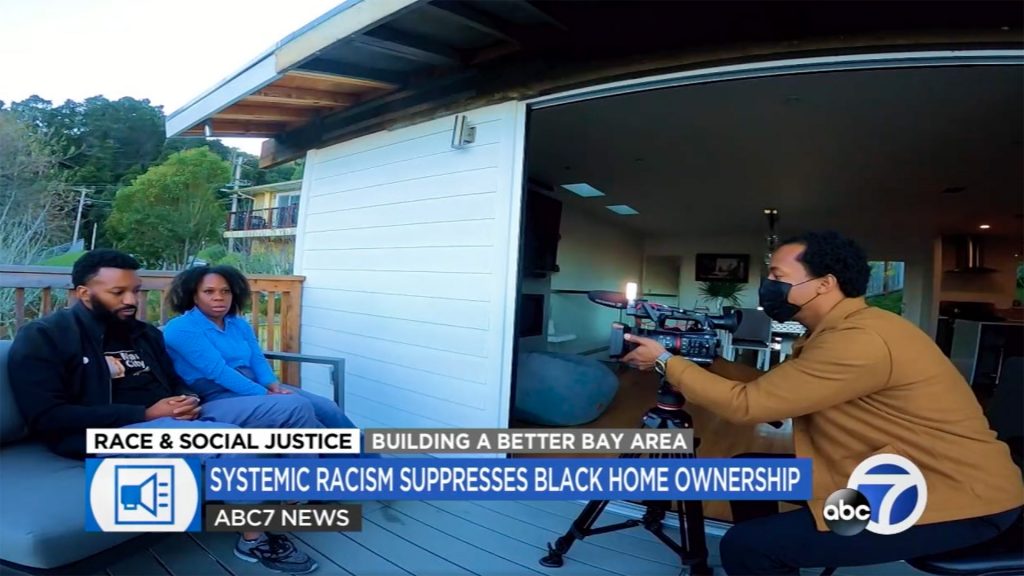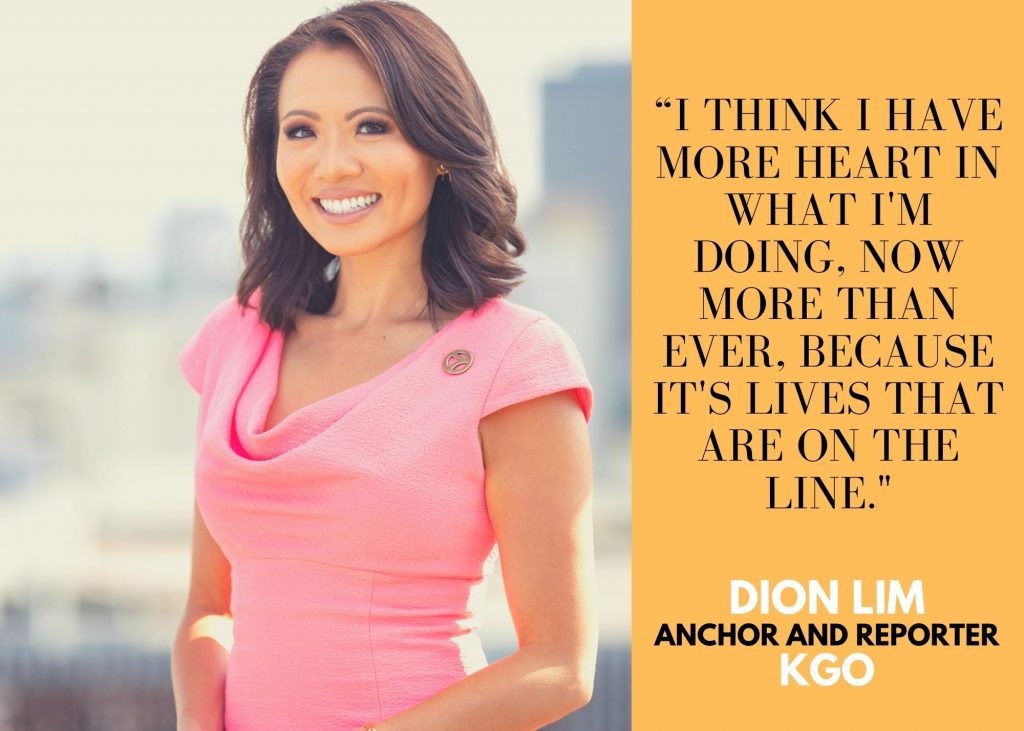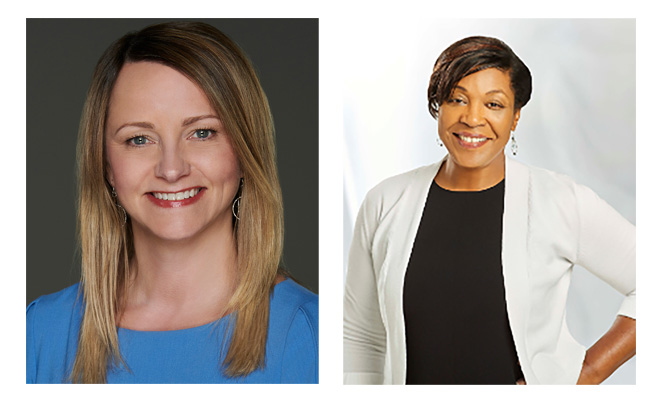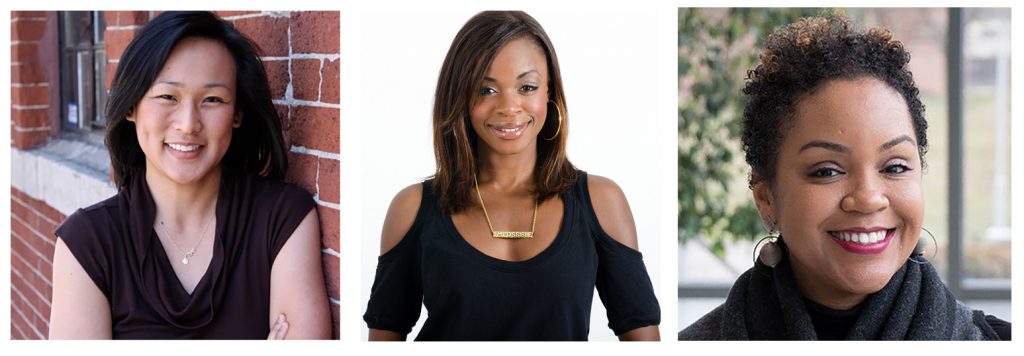
“EXCLUSIVE: Oakland man uses machete to scare away robbers,” the headline reads.
It’s a new twist on a familiar story for KGO anchor and reporter Dion Lim: Yet another attack on Asian-Americans in Oakland, California, except this time, the son of an elderly couple robbed right on their front porch fought back, chased off the assailants, and reluctantly agreed to share his story and the surveillance video (but not his identity).
Watch Dion Lim’s report on an Asian-American crime victim who fights back.
A year ago, Lim sounded an alarm about hate crimes and bigotry directed against Asian-Americans in response to the pandemic. Breaking down the wall of “objectivity” that traditional anchors maintain, Lim wrote a passionate op-ed for the San Francisco Chronicle, and the station followed up with a special program addressing the issue.
Lim, who got national attention for her outspoken reporting, now has more stories than she can handle covering what’s in effect a full-time beat — with even higher stakes given horrific events like last month’s mass shootings in the Atlanta area. “I think I have more heart in what I’m doing, now more than ever,” Lim says, “because it’s lives that are on the line. It’s not just people’s livelihoods and feelings, but it’s their physical lives and their families. And I think for me, I’ve let the wall down even further.”

Lim told me she couldn’t help tearing up during a live tag to one victim’s story. “I kind of lost it,” she says. “It just kind of all came out. And I was crying on the air. And I didn’t know what to do. And I think the anchors who were tossing to me and reacting on the back side really understood the toll that it was taking on me. And that opened the floodgates to more people wanting to reach out and say, ‘I feel the same way too.’ I feel like it’s the burden of five reporters all in one. But I use the term burden very carefully, because it’s a burden, but yet it’s a blessing. And it’s what every journalist wants in their career: to have more stories than they could possibly be able to tell.”
That burden just got a little lighter. That’s because the ABC Owned Television Stations have created what they call the “race and culture content team” to expand coverage of underrepresented communities, both in daily news reporting and in a series of specials. Lim’s reaction to the announcement: “Hallelujah, it’s about time!”
The newly announced initiative is an ambitious experiment in collaboration and a significant commitment of resources: a dedicated “multi-skilled journalist” (MSJ) embedded in each of ABC’s eight owned-station newsrooms, three executive producers, and two senior executives. “This is much more than 11 people,” says Jennifer Mitchell, senior vice president for content development. “The intention is that everyone throughout [the owned stations] is a contributor and a collaborator in this space. This is not a moment. It’s a movement. And we are committed to the work.”
“Race and culture is not a silo: You’re not going to go off into a little corner of the newsroom, and it’s only your work. It’s everybody’s work,” says Maxine Crooks, vice president of talent development. “We have to be able to use the voices of people whose neighborhoods we don’t normally go into and tell these stories from their vantage point. This is a way for us to really focus on doing that in a more intentional way.”

Many stations around the country have created special programming in response to heightened national concerns about racial injustice. Even before last month’s official announcement of the new unit, the ABC Stations started producing new specials and series under the Our America banner. We’ve reported on the docu-series Living While Black and the role of the division’s data journalism team in producing Hidden Stories.
ABC’s diverse new MSJ team is already covering a range of topics. KGO’s Julian Glover, billed as “race and social justice reporter,” told the story of a Black couple who had their home appraisal increased by half a million dollars after they asked a white friend to pose as the owner instead — and has followed up with a series of hard-hitting reports on the issue. (As Dion Lim has found, one good story leads to many more like it.) And there are features as well, from the history of the nation’s first Black-owned hospital (WLS-Chicago) to how families are celebrating the Lunar New Year — the Year of the Ox (KFSN-Fresno).
Watch MSJ Julian Glover’s report on housing discrimination.
The unit also plans to turn out special programs for broadcast and digital platforms, from 30-minute magazine-like compilations to hour-long documentaries, at a rate of about one a month. The three executive producers, who are based in different cities, meet every day, attend editorial meetings, and coordinate with the eight ABC newsrooms and the squad of embedded MSJs to manage the mix of day turns and specials. “There are things that are initiated at the local level that we try to support however we can, and then there are things that we initiate at the division level that we have them support,” says San Francisco-based EP Mariel Myers.

So far, everyone is playing nicely in the sandbox. ”We’re really here to give guidance. I think having this unit has really empowered people within the stations to speak up,” Myers says, and quotes her Philadelphia-based counterpart Porsha Grant as saying, “We’re not the culture police.” “It’s not that watchdog role,” agrees Los Angeles-based EP Nzinga Blake, “It’s bringing awareness to what is really happening, and allowing the space for us to actually have a real conversation — you know, a candid conversation.”
That candid conversation reflects a growing change in the newsrooms themselves — a change that may be just as significant as the content the new team creates. “The culture shift within the organization has been tremendous,” says Mitchell. “I think it’s just about people bringing life experiences to how we tell stories,” says Crooks. “I think what’s different is that people now recognize that it’s okay to be who you are in your work settings, and it’s okay to show your ethnicity or to have a different voice and to use that voice.” “I have never been comfortable speaking about race in my place of employment, and that has completely changed,” says Blake. “I got really emotional with Jennifer [Mitchell] the first time I met her, because I’m like, ‘I can actually have a conversation with you without feeling judged or being afraid.’”

Dion Lim also sees the creation of the race and culture team as significant progress. “It’s going beyond the step of having people who look diverse on the air,” she says, “because this is putting your money where your mouth is. I’ve always said that it’s the people in the decision-making positions that need to be diverse, but now you [also] have dedicated people on the ground, and everyone is working together towards it.”
I asked four senior members of the team for their definition of victory.
Nzinga Blake: “I will consider it a victory when I finally see comments on a race and culture story, and people don’t say, ‘So what?’ People ask the question, ‘Why?’ Or, ‘How can I help?’ When we start seeing empathetic responses in our viewers.”
Mariel Myers: “I will feel like there’s victory when people feel like they belong to the community because they see the representation. Viewers and users would feel like they are a part of the community, they are part of the conversation, that they don’t feel shut out — that they belong.”

Maxine Crooks: “I’ll be happy if this just becomes routine, in the sense that it becomes second nature. That it’s something that we don’t have to always plan, that we just do on a regular basis — just come out and do it.”
Jennifer Mitchell: “In two years, exactly as Maxine said, all 1,500-plus employees are doing the work that this group is doing right now.”
That’s an irony underlying this new initiative: The ultimate measure of success may be that it’s no longer needed.